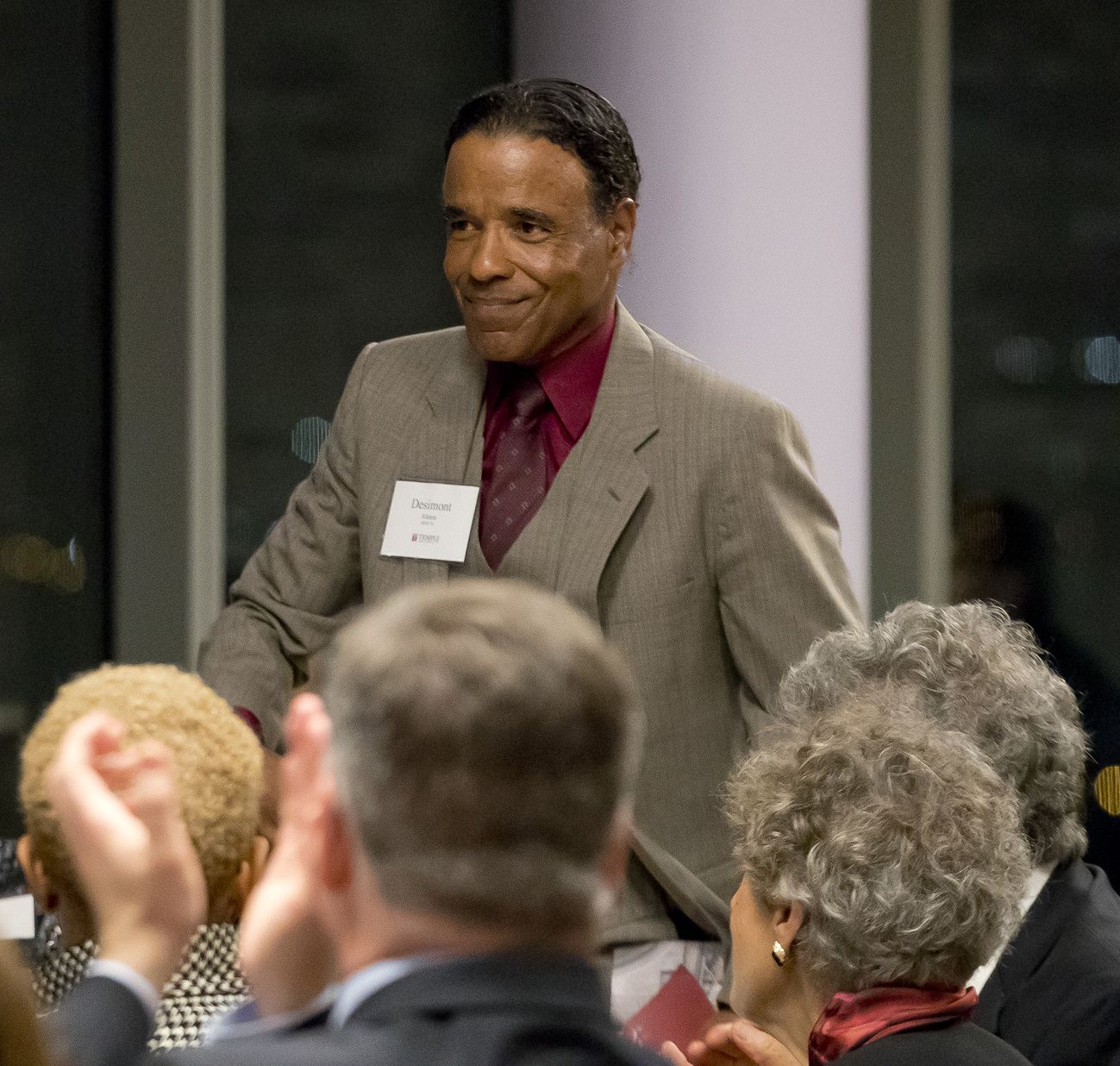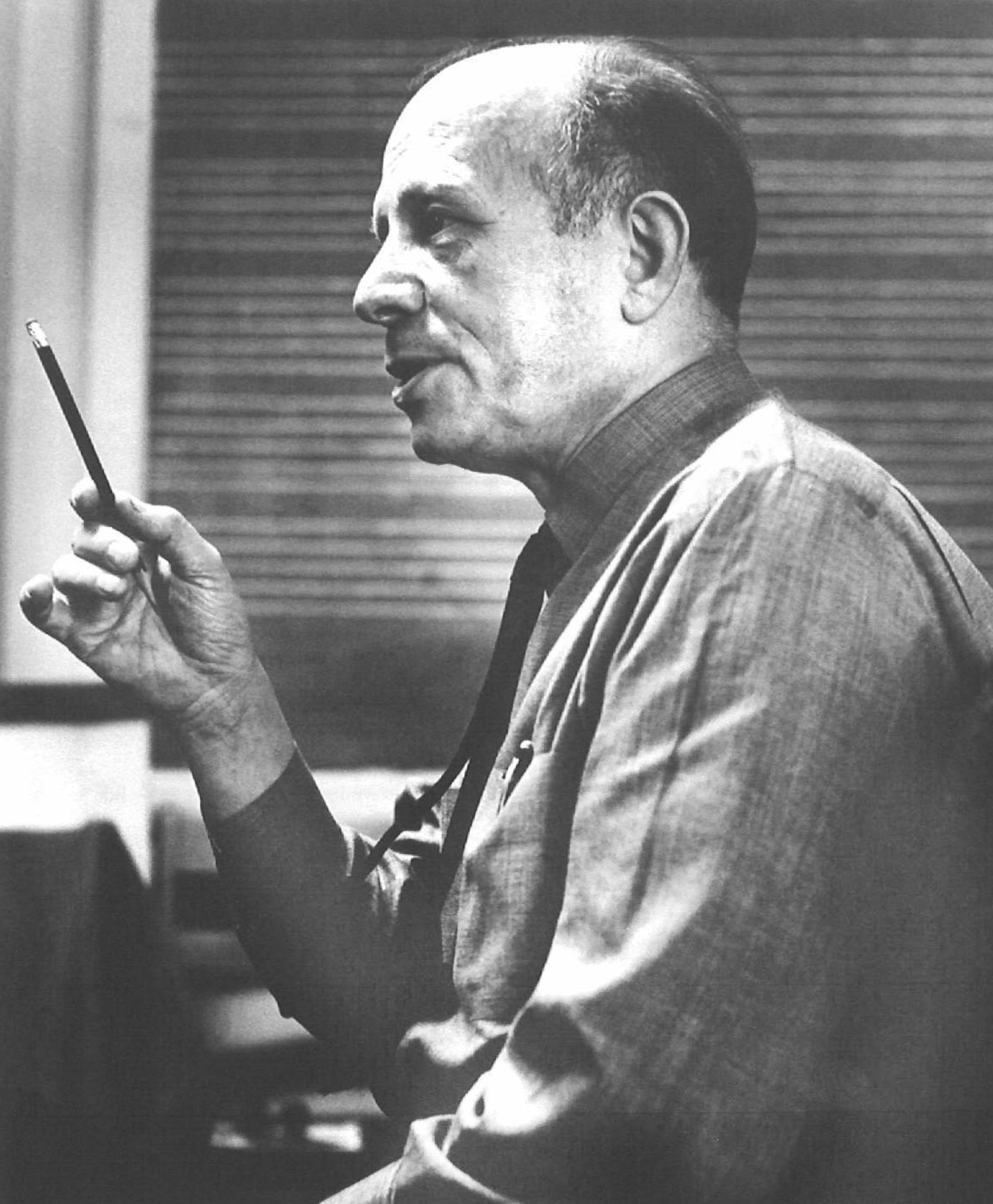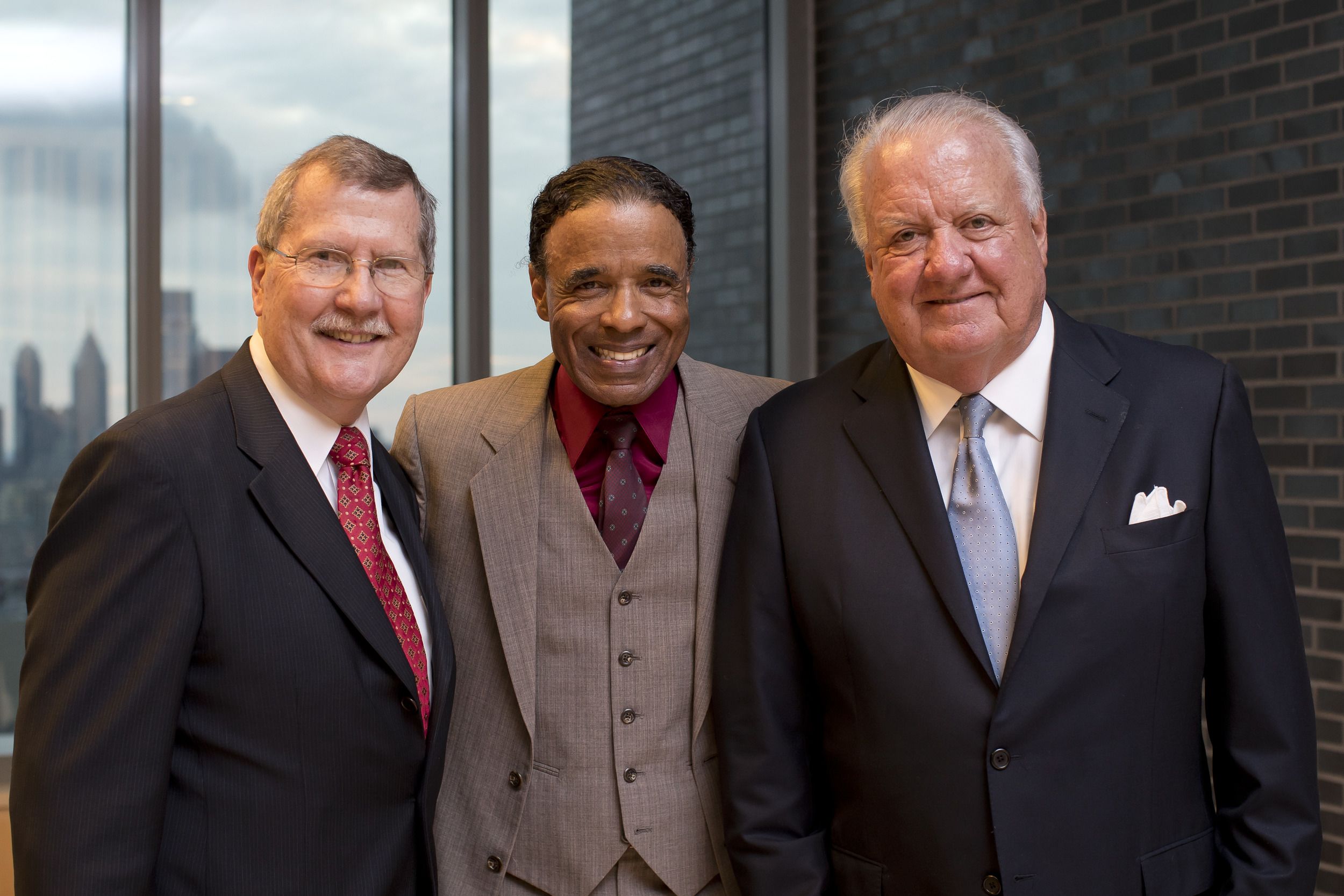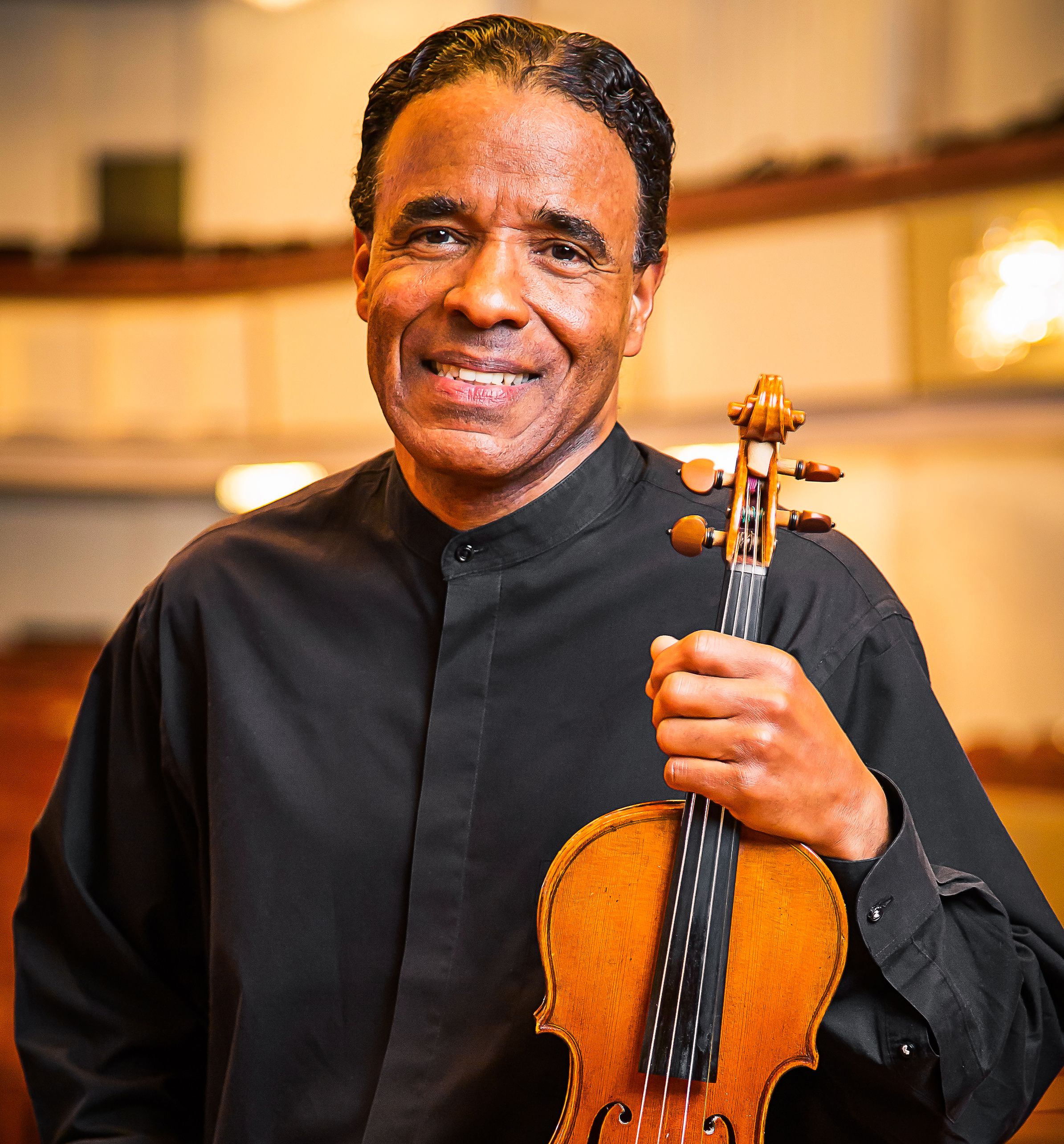Boyer Alum Pays Tribute to Mentor, Friend and Musical Icon
The Edgar Ortenberg Bowed String Instrument Scholarship Fund honors the life and legacy of renowned violinist and former Temple faculty member, Edgar Ortenberg.
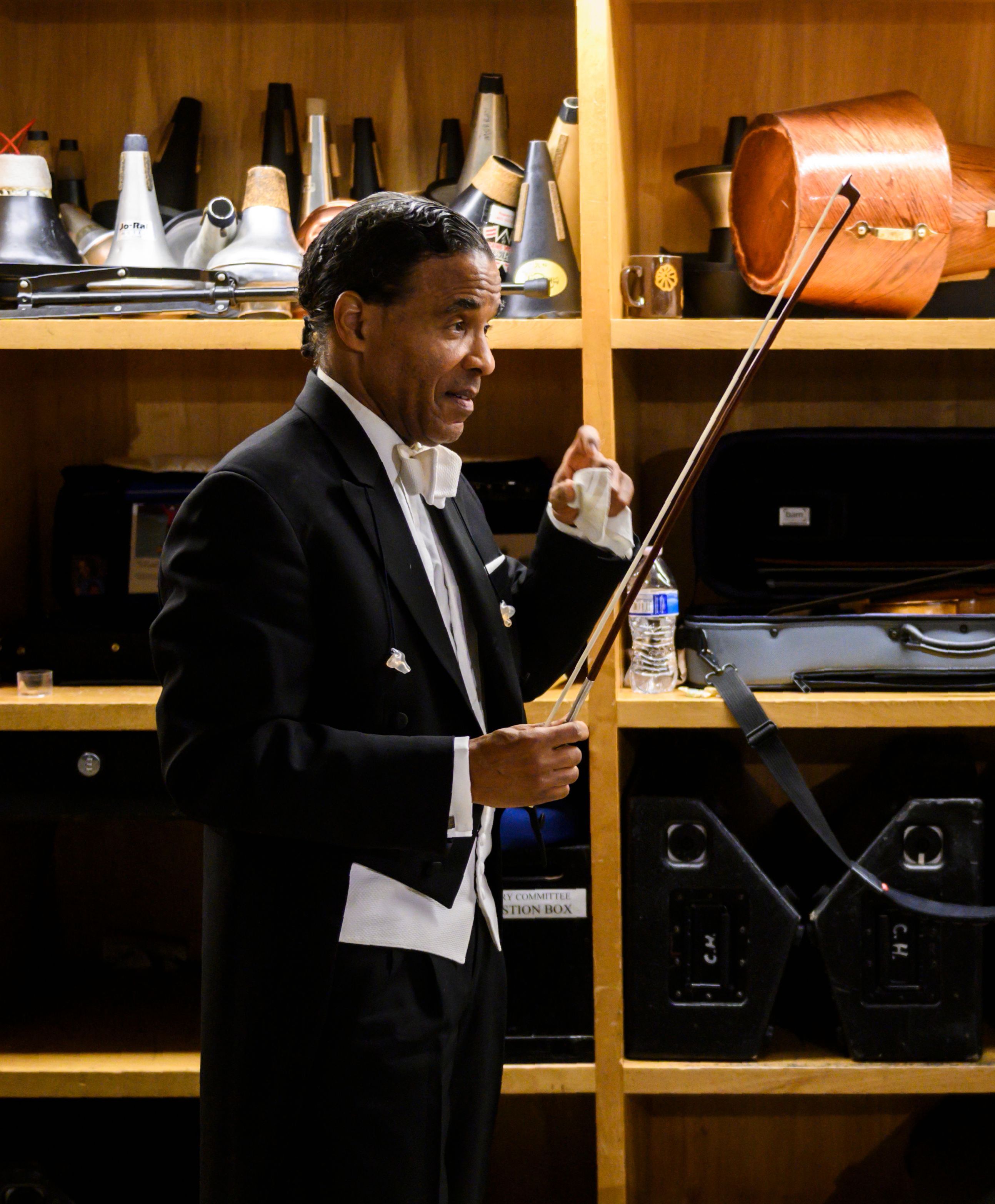
For generations of violinists, Edgar Ortenberg was an icon. To Desimont “Desi” Alston, BYR ’74, he was so much more.
“Edgar Ortenberg was my teacher, my mentor and my friend,” says Alston. “I was, without a doubt, the son he never had.”
Today, Alston is an acclaimed violinist at the National Symphony Orchestra, the same organization he joined nearly 50 years ago at the impressive age of 21 years old. His introduction to Ortenberg, a former member of the famed Budapest String Quartet and renowned musician in his own right, came at just nine years old as a student at the Philadelphia Settlement Music School.
After infamously poaching Alston from another teacher, Ortenberg, who passed away in 1996 at the age of 96 years old, served as Alston’s violin instructor throughout his youth and adolescence. Alston followed Ortenberg to Temple without hesitation, where Ortenberg was head of the string department at Boyer College of Music and Dance, remaining until he retired in 1973.
Desi at the 2017 Temple University Chairmans Dinner.
Desi at the 2017 Temple University Chairmans Dinner.
“For four years, Temple served as a foundation for me—a place of respite to get off the street and not be in harm’s way. I’m very proud of who I am today and where I am today, and Temple played a significant role in that journey.”
As a musician and a role model, Ortenberg’s influence was unmatched. Now, Alston is honoring his mentor’s legacy with a meaningful gift that will support Temple’s next generation of musical leaders.
“I wanted his legacy to live on in a tangible way, and what better way than to leave a gift,” says Alston, who established the Edgar Ortenberg Bowed String Instrument Scholarship Fund to provide financial assistance for Boyer students who maintain a 2.5 GPA and demonstrate financial need.
“This isn’t a quid pro quo—what Edgar Ortenberg did for me, I’ll do for others. We had a visceral bond,” he adds. “The question became, ‘how do I impart that on others?’”
Edgar Ortenberg.
Edgar Ortenberg.
Edgar Ortenberg, 1900-1996
Born on June 17, 1900, in Odessa, Ukraine, Edgar Ortenberg began violin lessons at age 6 and studied under renowned pedagogue Pyotr Stolyarsky from ages 8 to 15. By 17, he was teaching at Odessa Conservatory, and by 1923, he joined the Moscow Conservatory as a pedagogue. Forced to flee Russia in the mid-1920s due to rising anti-Semitism, he settled in Berlin, became first violinist of the Berlin String Quartet, and married Tamara Kagan. In 1933, they moved to Paris to escape the Nazi threat. Ortenberg toured extensively in Europe and became a French citizen in 1937. In 1940, he narrowly escaped the Nazi invasion, fleeing to Portugal and boarding the last ship to America before escape routes closed. He settled in New York City, joining the Budapest String Quartet. In 1949, he moved to Philadelphia to teach at the Settlement Music School, where he remained until retiring in 1988. He also taught at Temple University from 1951 to 1973. Ortenberg passed away in 1996 at age 96 in Philadelphia.
In an effort to share Ortenberg’s influence with the students who didn’t have the chance to know him personally, Alston has created a keepsake for each scholarship recipient: a photo and biographical profile of Ortenberg.
“Whoever receives these funds, I hope they will learn about Ortenberg and feel and appreciate his legacy,” says Alston. “I think that the recipient will be able to read between the lines and understand how much this person meant to me.”
“My hope is that these students make a difference, in whatever they choose—that they have some kind of musical impact on the world,” he adds.
Desi (middle) at the 2017 Temple University Chairmans Dinner with Richard Englert (left) and Patrick J. O'Connor (right.)
Desi (middle) at the 2017 Temple University Chairmans Dinner with Richard Englert (left) and Patrick J. O'Connor (right.)
“I’ve always believed the aphorism, ‘What we ultimately do for ourselves, dies with us. What we end up doing for others, lives on forever."
For Alston, his gift is an opportunity to recognize not just a significant person in his life, but also a place that had an incredible impact on his own musical growth and career trajectory. Growing up not far from Temple Main Campus, Alston recognizes the positive influence the university had on his life, shielding him from the dangers of his neighborhood and providing a safe environment to hone his craft.
“For four years, Temple served as a foundation for me—a place of respite to get off the street and not be in harm’s way,” he says. “I’m very proud of who I am today and where I am today, and Temple played a significant role in that journey.”
Desi, via the National Symphony Orchestra.
Desi, via the National Symphony Orchestra.
"Desi’s gift creates a broader legacy for the famed violinist Edgar Ortenberg, whose work at Temple and with the Budapest String Quartet had a major impact on 20th Century music. This gift will allow students to continue studying bowed string instruments at Boyer College for years to come.”
Now, more than 25 years after Ortenberg’s death, Alston’s gift stands as a testament to the professional and personal impact that his late mentor had on his life, something he hopes a new generation of Temple string musicians will feel too.
“I’ve always believed the aphorism, ‘What we ultimately do for ourselves, dies with us. What we end up doing for others, lives on forever," Alston says, citing an Anonymous quote.

